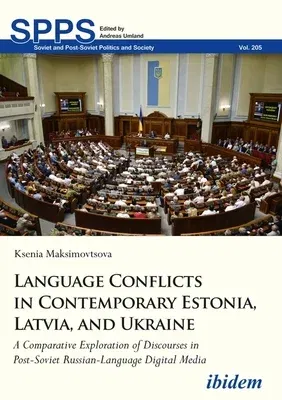Language policy and usage in the postcommunist region have continually
attracted wide political, media, and expert attention since the
disintegration of the USSR in 1991. How are these issues politicized in
contemporary Estonia, Latvia, and Ukraine? This study presents a
cross-cultural qualitative and quantitative analysis of publications in
leading Russian-language blogs and news websites of these three
post-Soviet states during the period of 2004-2017.
The most notable difference observed between Ukraine and the two Baltic
countries is that many Russian-writing users in Ukraine's internet tend
to support the position that the state language, i.e. Ukrainian, is
discriminated against and needs special protection by the state, whereas
the majority of the Russian-speaking commentators on selected Estonian
and Latvian news websites advocate for introducing Russian as a second
state language. Despite attempts of Ukraine's government to Ukrainize
public space, the position of Ukrainian is still perceived, even by many
Russian-writing commentators and bloggers, as being 'precarious' and
'vulnerable.' This became especially visible in debates after the
Revolution of Dignity, when the number of supporters of the introduction
of Russian as second state language significantly decreased. In the
Russian-language sector of Estonian and Latvian news websites and blogs,
in contrast, the majority of online users continually reproduce the
image of 'victims' of nation-building. They often claim that their
political, as well as economic rights, are significantly limited in
comparison to ethnic Estonians and Latvians.
The results of Maksimovtsova's research illustrate that, notwithstanding
differences between the Estonian as well as Latvian cases, on the one
hand, and Ukraine, on the other, there is an ongoing process of
convergence of debates in Ukraine to those held in the other two
countries analyzed in terms of an increased degree of 'discursive
decommunization' and 'derussification.'

